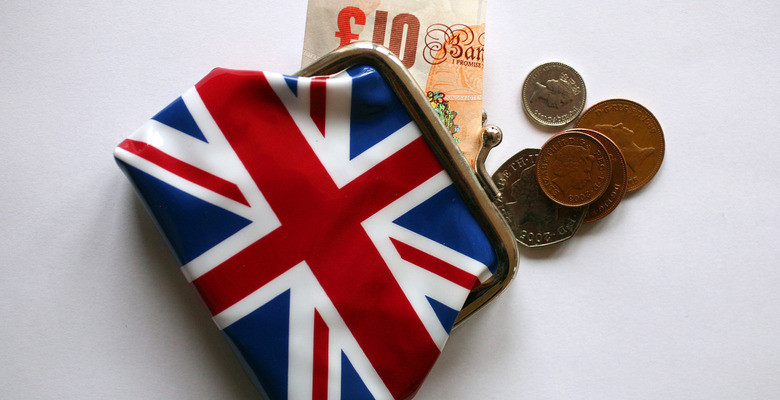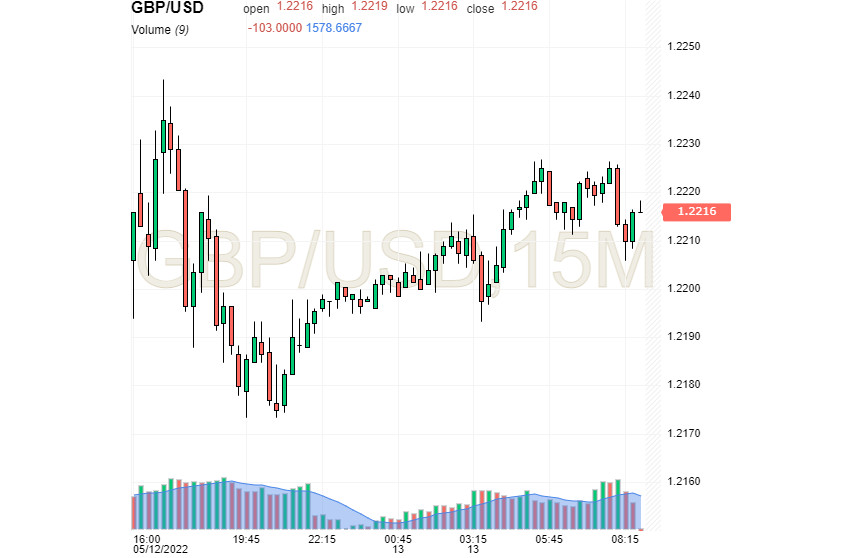
The British currency continues to extend losses and is struggling to stay afloat. The geopolitical tensions and the downbeat economic data limit the upside potential of the pound. If negative factors persist, this will send the pound sterling to the critical level of 1.2200.
On Thursday, May 12, the pound sterling hit a new 2-year low against the greenback, which has been actively gaining ground for several days. As a result, the pound sank by 0.4%, reaching 1.2198. Earlier, GBP had nearly tested the bottom, having plunged to 1.2167, its lowest level since May 2020. The reason behind such a drop is a serious weakening of the national economy which is confirmed by the recent indicators.
According to the current data, British employers added permanent staff last month at the lowest rate in over a year. This suggests that the UK labor market might be cooling. What is more, the country's economy contracted by 0.1% in March due to a sharp drop in car sales caused by supply chain disruptions.
Against this backdrop, the British currency is rapidly losing optimism. On Friday, May 13, the pound managed to recover slightly. The GBP/USD pair was trading at 1.2216. According to experts, the sterling is under heavy pressure from disappointing macroeconomic data. Over the past three months, the UK economy expanded by just 0.8% for the first quarter compared to the 1.3% growth recorded earlier. According to analysts at Commerzbank, this is a very weak result which puts serious pressure on the pound.

If the tendency of risk aversion remains in place, GBP/USD will continue to decline. If the pair fails to gain a foothold above the psychologically important level of 1.2200, then it could fall to 1.2150, the low from May 2020. The next target for the pound will be the psychological level of 1.2100. With this in mind, experts recommend staying short on the GBP/USD pair with a target of 1.2100.
The GDP growth of 0.8% in the first quarter of this year was below the expectations of the market as analysts predicted a 1% increase. Investors are concerned about the current state of the economy as they remember the Bank of England's warning of a possible recession by the end of 2022. These worries intensified a sell-off in the pound and made it even weaker.
Additional factors to weigh on the sterling include the geopolitical crisis associated with the Russian-Ukrainian conflict and some internal issues. Thus, the uncertainty around Northern Ireland is again on the agenda. The European Union is ready to suspend the trade agreement with the UK if it unilaterally revokes the Northern Ireland Protocol.
Experts fear that the conflict between the UK and the EU over the protocol may intensify. This poses a threat to the UK economy. As a result, market participants will lower their expectations of the interest rate, which will put additional pressure on the pound.
In this situation, the Bank of England will have to increase the borrowing costs to curb soaring inflation. This creates certain risks for the country's economy since the regulator has already raised interest rates four times since December 2021. Analysts at Rabobank think that the current state of affairs increases the risk of stagflation in the UK and "does not give a breather to the battered pound."
According to the BoE estimates, inflation is forecast to peak at 10.2% by the end of this year. At the same time, consumer prices in the UK are growing faster than the income of citizens. This contributes to a sharp decline in consumer activity in the country. Many analysts warn about an alarming loss of momentum in the British economy since the beginning of the year due to rising inflation.
Experts warn that the UK economy could plunge into recession in the fourth quarter of 2022. According to the Bank of England, the country's GDP is expected to shrink by 0.25% in 2023 despite a previous forecast for growth of 1.25%. In the current situation, the pound sterling is looking for any kind of support. Thus, analysts at Credit Agricole think that the British pound is a hedge against stagflation although it is currently oversold and undervalued and its potential is now limited.





















